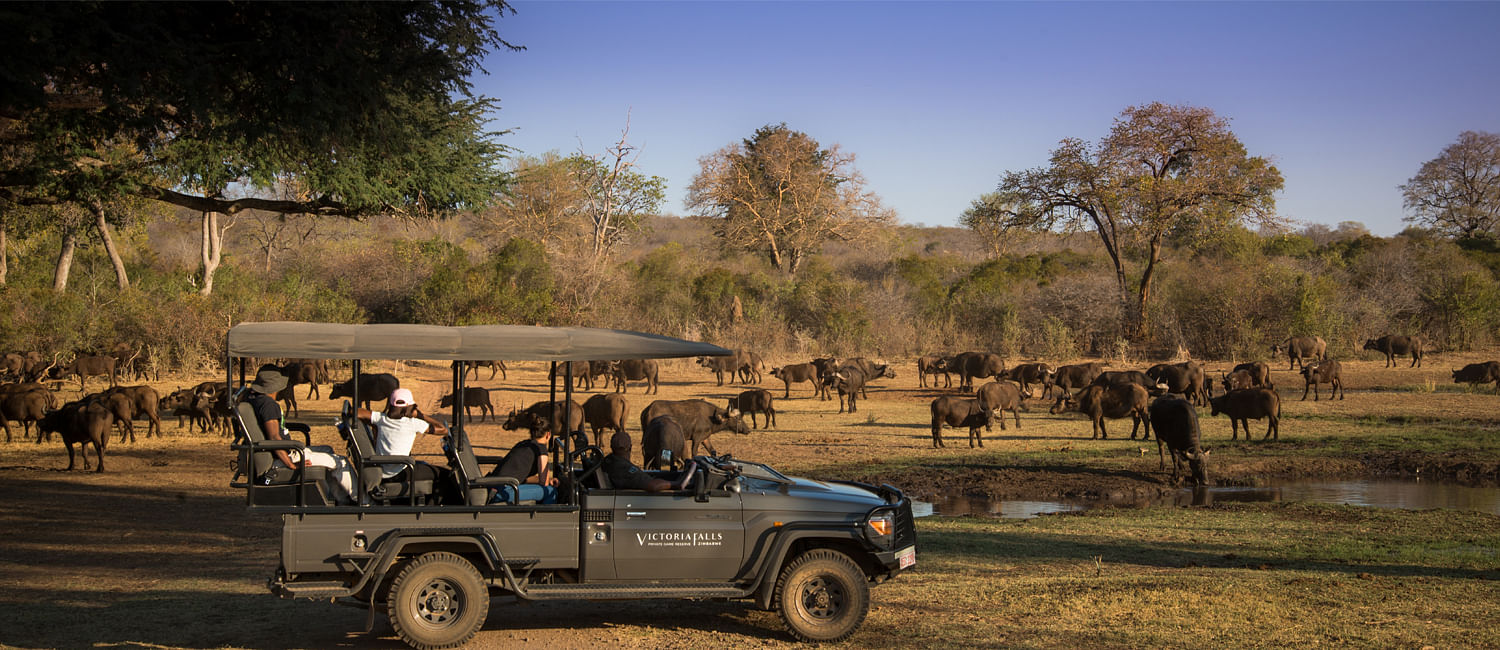6-Day Victoria Falls and Chobe National Park Luxury Safari
6-Day Victoria Falls and Chobe National Park Luxury Safari
A safari experience is more than just the sights and sounds of wildlife—it’s a journey of discovery. This luxury safari package invites you to explore the majestic Victoria Falls, where you can feel the refreshing spray on your skin as you admire one of the world’s greatest natural wonders. From there, hop into our safari jeep and venture deep into Botswana’s Chobe National Park. Get up close with the wild, immerse yourself in breathtaking landscapes, and create unforgettable African memories.































































